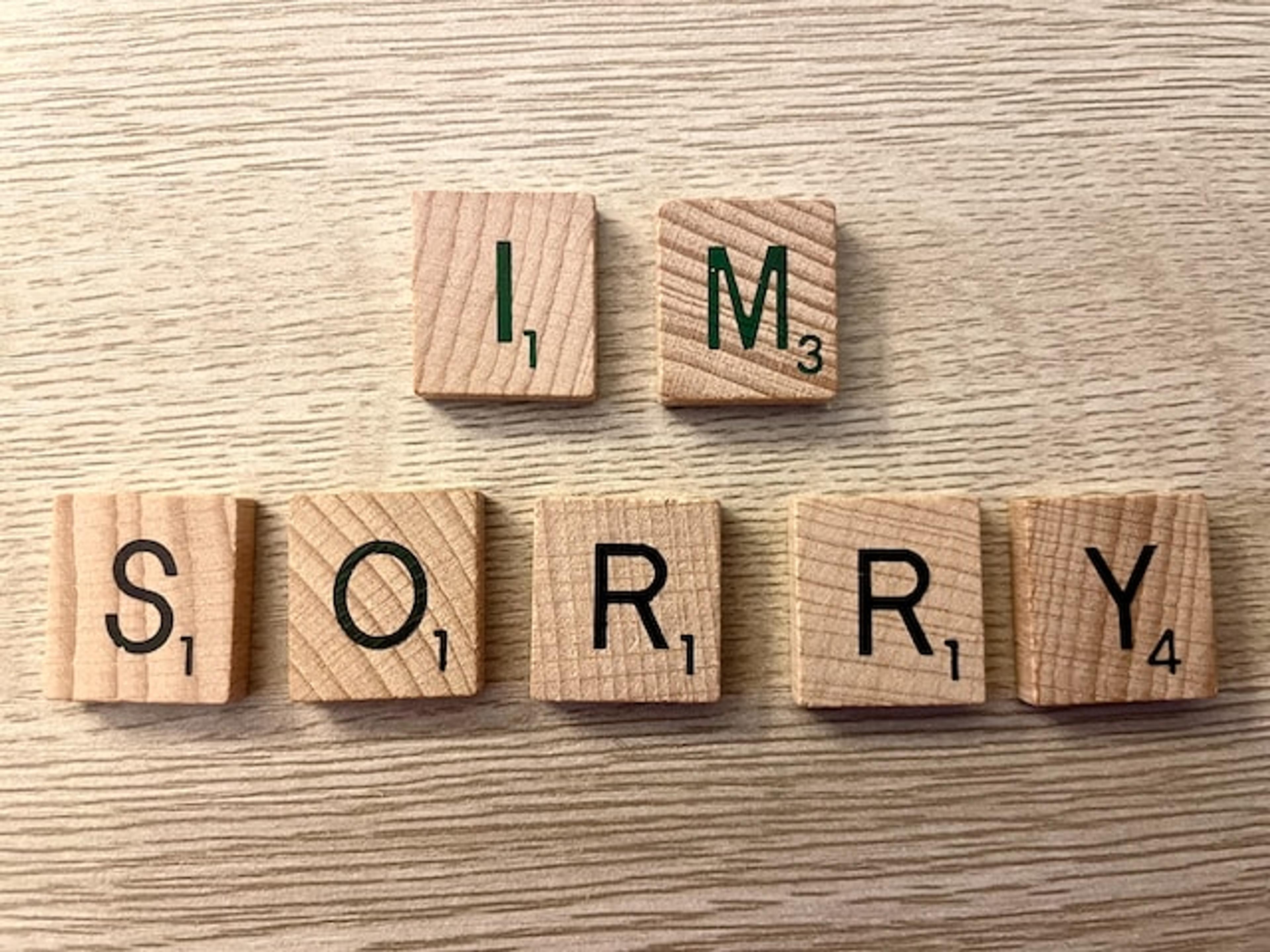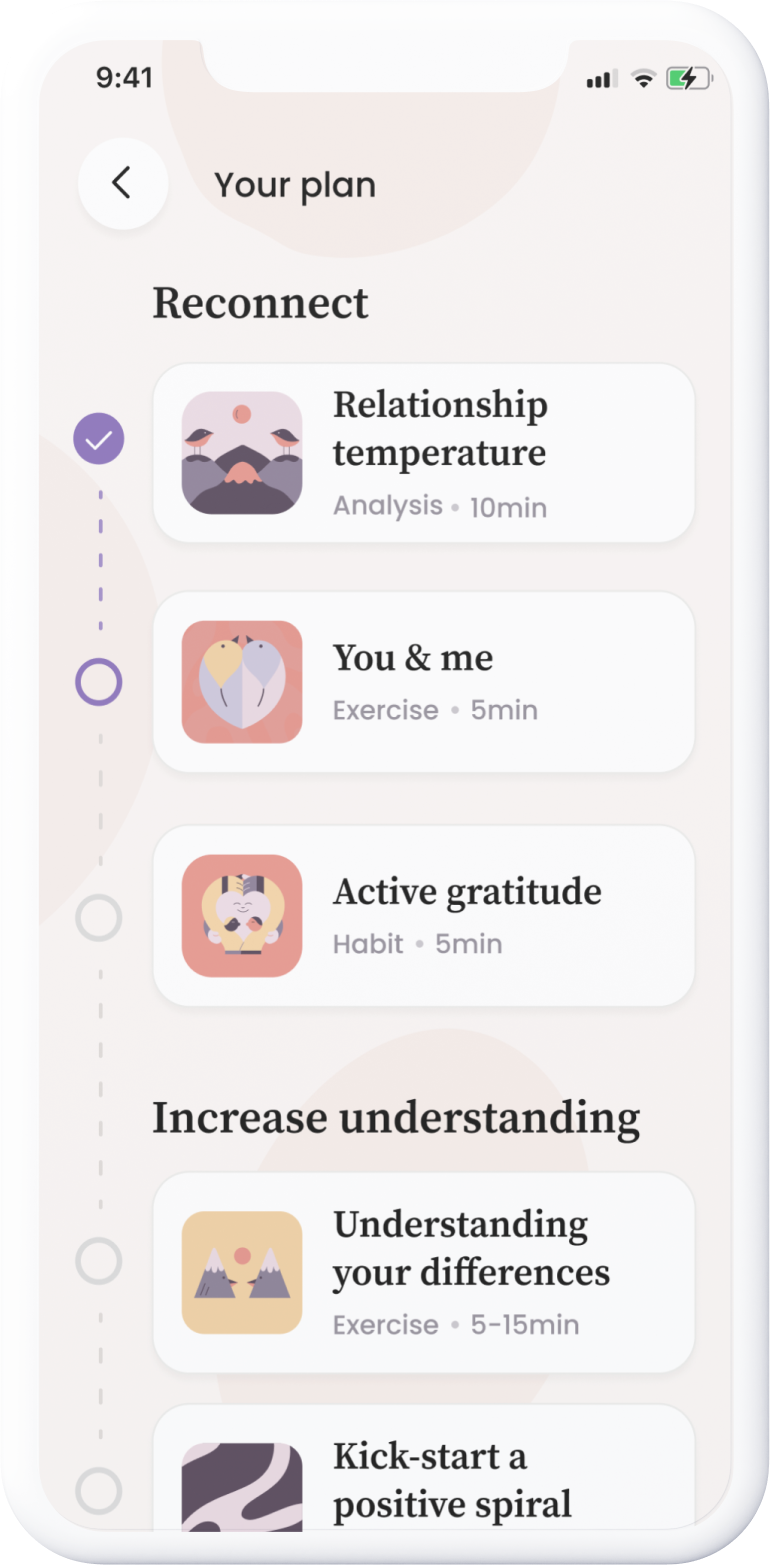How to Apologize (Properly) in a Relationship
Here’s what psychologists suggest is the best way to say you’re sorry to your partner- 14 September 2023
- 5min

In any relationship, misunderstandings, disagreements, and hurt feelings are bound to happen from time to time.
When you find yourself in the wrong, offering a heartfelt apology is crucial to healing and maintaining a healthy connection with your partner.
However, to apologize effectively takes more than just uttering the words “I'm sorry.” It involves sincerity, empathy, and a commitment to making amends.
Apologizing can be one of the most challenging things we do in life. It's easy to slip in an excuse or a “but I didn't mean to” when saying sorry, which can undermine the apology itself.
Why apologies are important in a relationship
Saying sorry can indeed be difficult. However, it is also one of the most valuable things you can do to build and strengthen a close relationship.
Apologizing when you realize you've crossed a line or hurt someone is also a way to get closer to each other. For couples who have repeated conflicts, taking responsibility for one's actions is an essential step in resolving those conflicts.
So, how can you say sorry effectively? Here are some tips that can help you.
7 steps for properly telling your partner that you’re sorry
1) Reflect on your actions
Before you approach your partner to apologize, take some time to reflect on the situation. What exactly did you do that was wrong, and why did you do it?
Understanding the root causes of your actions will help you convey sincerity when you say sorry. It shows that you're not just apologizing to appease your partner but genuinely want to rectify the situation.
2) Choose the right time and place
Timing is essential when it comes to an apology. Find a quiet, private moment to talk to your partner without distractions. Avoid apologizing in the midst of an argument or when either of you is stressed or preoccupied. A calm, peaceful environment encourages open communication and a more receptive response.
3) Take responsibility
To apologize in a meaningful way, it's important to be sincere and honest. Avoid downplaying the situation, deflecting blame, or giving a lengthy explanation for why you did what you did.
To ensure the apology is effective, it's crucial that you fully take responsibility for your actions. You need to show that you understand what you did wrong. This applies even when you have thoughts about things your partner has done wrong or things they have said that may have hurt you.
Avoid saying, "Sorry if I misunderstood, but you could express yourself more clearly next time." Instead, say, "I'm sorry I misunderstood you; I should have really checked with you to make sure I understood correctly."
4) Show understanding of your partner's feelings
Convey to your partner that you understand that your actions created negative feelings. You can do this even if you wouldn't have reacted the same way as your partner. Your partner's feelings are reasonable based on who they are and their experiences.
Rather than saying, "I didn't mean any harm; you don't need to react so strongly," say, "I understand that you were really upset when I expressed myself that way."
5) Be specific and focus on the here and now
Focus on the current situation. Avoid bringing up past events or pointing out that your partner sometimes hurts you. Explain why you are sorry for what you did and how it affected the other person. Stick to that; avoid adding "...but" or "last week when you..."
6) Offer to make amends
Apologies are not just words; they are a commitment to change. Offer a solution or express your willingness to make amends.
Of course, you can’t say you’ll never hurt your partner again. You’re both different as individuals, and you'll occasionally step on each other's toes without intending to. Still, it's important to show that you genuinely want to try and make an effort not to repeat the same mistakes.
7) Give them space
After apologizing, allow your partner some space to process their feelings. Don't pressure them for an immediate response or demand forgiveness. Everyone heals at their own pace, and respecting their need for space is crucial for rebuilding trust.
If your partner doesn't react positively to your apology right away, it doesn't mean it was the wrong thing to do. Even if you think what you did was a minor issue, it may have been an emotional trigger that your partner is sensitive to. These emotions can take time to process.
Show that you're there for your partner in both words and actions. This becomes especially important for a while after making your partner upset.
Sometimes apologizing isn’t enough
If it's not a minor mistake or clumsy error, but a more significant betrayal — a simple apology won't be enough. In that case, you'll need to actively work over a long period of time to take responsibility for what happened and repair things in various ways.








